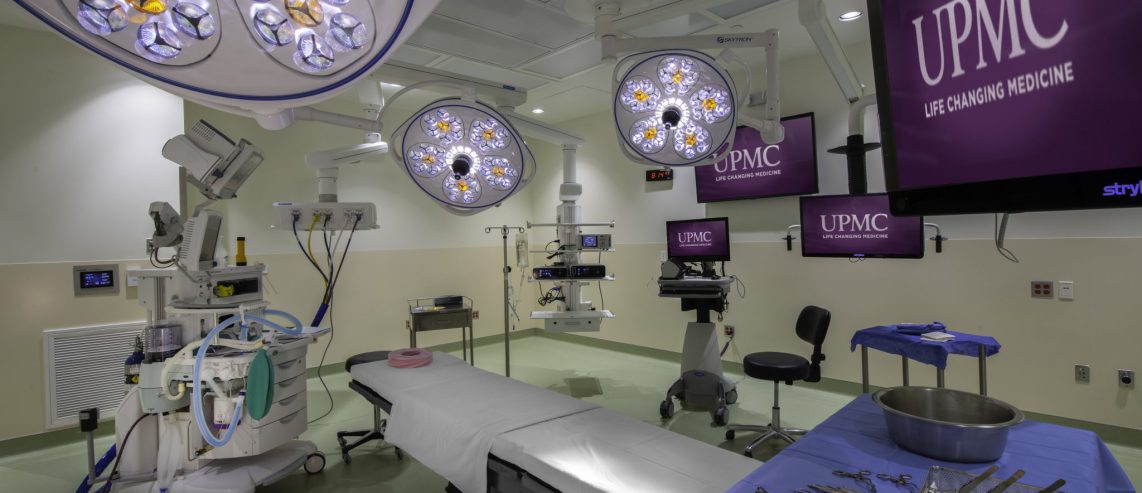When you or someone you love needs a liver transplant, finding a transplant center that meets your needs is vital. You probably have many questions and concerns about this life-saving surgery. If you’ve learned a liver transplant is right for you, a second opinion can help you feel confident in your choice.
Since 1981, the UPMC Liver Transplant Program has provided consultations and second opinions. Over 6,000 people with end-stage liver disease (liver failure) have trusted UPMC experts for their surgery.
Make sure you choose a transplant center where you feel comfortable and confident in your team. Your transplant team is with you at every step. Here’s what to look for in a liver transplant center.
Never Miss a Beat!
Subscribe to Our HealthBeat Newsletter!
Thank you for subscribing!
You can now select the specific newsletters you'd like to receive.
You are already subscribed.
Subscribe to more newsletters in our email preference center.
Sorry, an error occurred. Please try again later.
Get Healthy Tips Sent to Your Phone!
Does the Liver Transplant Center Offer Options?
Liver transplant surgery replaces your diseased liver with a healthy donated liver. Often, donated livers come from deceased donors. But because the liver is an organ that can grow again (regenerate), healthy liver tissue may also come from a living donor.
According to U.S. Health Resources and Services Administration, more than 10,000 people in the U.S. are waiting for a donated liver. Many wait months — or even years — for a liver. A transplant center that offers living-donor liver transplants reduces the time spent waiting for a new liver.
If you need a liver transplant, you have options. Talking with a different doctor (getting a second opinion) can help you decide what’s best for you. It’s important to know you can:
Talk to your liver doctor (hepatologist)
Your hepatologist helps you understand how liver transplant surgery can restore your health. Talk to your doctor about whether you meet the criteria for a living-donor liver transplant.
Some transplant centers don’t offer living-donor liver transplants. If that’s your center, ask for a second opinion from a transplant center that does. UPMC’s living-donor liver transplant experts will talk with you and see if you’re a good candidate for this surgery.
UPMC offers both deceased-donor and living-donor transplants.
Self-refer to some transplant centers
You may feel you must go to the transplant center your doctor recommended. But if that center doesn’t meet your needs, many transplant centers allow patients who self-refer. Self-referral just means calling the transplant center yourself to plan a visit or get more information.
Register at more than one transplant center
Before taking you as a patient, a transplant center considers your case. You’ll:
- Agree to meet the center’s criteria. You must follow their rules. These may include getting to the center as soon as possible when a new liver becomes available.
- Have visits with the transplant team. The team talks with you about the transplant process. They check you to make sure you’re a good candidate.
You can register as a patient at two or more transplant centers, called multiple listing. Multiple listing helps raise your chances of getting a donated liver sooner.
Consider registering at multiple transplant centers away from your home area but still accessible. If you’re registered near the donated organ’s location and can get there quickly, you may shorten your wait time.
There are some critical considerations if you register with more than one center. You may need to:
- Cover travel expenses to transplant centers far from your home.
- Get care after surgery at a center far from where you live. Talk to the transplant team — you may be able to get follow-up care closer to home.
- Talk to your health insurer to make sure your plan covers any extra tests. Each transplant center you register with will do its own testing.
What Expertise and Support Does the Transplant Center Offer?
A liver transplant is a major surgery. Talk with your doctor about the risks and benefits of a liver transplant. When choosing a liver transplant center, consider their:
Pre-transplant support
Your transplant team guides you through the liver transplant process. During pre-transplant assessment, you’ll speak with experts. They’ll review surgery’s financial, mental, and physical effects. You may have:
- Blood tests.
- Meetings with liver and transplant experts to help you understand your surgery options.
- Tests to check your liver’s health and how any other health issues you have affect your readiness for surgery.
You and your loved ones may also meet with:
- Financial experts to discuss any costs not covered by insurance.
- Nurse coordinators to talk about scheduling.
- Social workers to discuss caregiving and emotional needs.
If you’re having a living-donor liver transplant, look for a transplant center that offers tools to help you find a donor.
Liver transplant experience
When you need liver transplant surgery, experience matters. Surgeons become experts by doing many liver transplant surgeries (high volume) each year. Choosing a center with a high volume of liver transplants yearly means you’re in expert hands.
This is vitally true if you’re having a living-donor liver transplant. Look for a transplant center with expertise in living-donor liver transplant surgery.
Ask the team how many liver transplants they do and how healthy patients are after surgery (outcomes). Check each center’s independent rankings.
Support after liver transplant surgery
After liver transplant surgery, you’ll need plenty of support. You’ll take drugs to keep your body from hurting your new liver.
You can expect many follow-up visits after surgery. Doctors check your liver’s function and make sure you’re healing well.
It’s also important to have emotional support after liver transplant surgery. You may experience guilt and other difficult emotions. Talk to your transplant center about resources to help you cope as you recover.
Choosing the Liver Transplant Center That’s Right for You
There’s a lot to think about when choosing a transplant center. It may help to:
- When talking to the transplant center team, have a list of questions ready. Make sure you get all the details you need about what your time there may be like.
- Pay attention to how you feel. Are team members friendly? Do you feel comfortable? Do they listen to your questions, feelings, and thoughts?
Selecting a transplant center for your liver transplant surgery is a big decision. A second opinion can help you feel confident you’ve made the best choice.
UPMC’s experts can give you a second opinion or tell you more about liver transplant options. You’ll find a full support system as you navigate your transplant choices.
Our liver transplant experts answer every question you have with care and compassion. We’re here to help you choose the best path toward better health.
Sources
About Transplant Services
For more than four decades, UPMC Transplant Services has been a leader in organ transplantation. Our clinicians have performed more than 20,000 organ transplant procedures, making UPMC one of the foremost organ transplant centers in the world. We are home to some of the world’s foremost transplant experts and take on some of the most challenging cases. Through research, we have developed new therapies that provide our patients better outcomes — so organ recipients can enjoy better health with fewer restrictions. Above all, we are committed to providing compassionate, complete care that can change – and save – our patients’ lives. Visit our website to find a provider near you.

